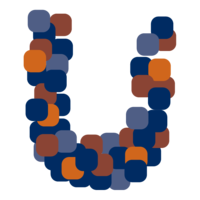Unikraft: A Unikernel Toolkit
- Track: Microkernels and Component-based OS devroom
- Room: K.4.601
- Day: Sunday
- Start: 16:00
- End: 16:25

Although unikernels - images containing specialized OS primitives and libraries targeting a specific application - have shown impressive performance potential (e.g., fast I/O of 40 Gbps, fast instantiation in the millisecond range, minimal memory footprints of only KBs and a minimal trusted compute base), creating them has proven to be a complicated and time-consuming process. This is mostly because operating system components have to be individually specialized and developed for each target application and target platform.
In this talk we give an update on the Unikraft open source project. Unikraft is a toolkit for creating specialized unikernels and it aims to remove the need for time-consuming, expert work. In the past two years, the community has put a lot of effort into supporting OS functionality, drivers, and platforms, porting libraries, and providing tools to ease porting of existing applications. We will give an overview of all the exciting achievements and conclude with an outlook of recent project directions: binary compatibility (Linux ABI), support for a wide range of compiled and interpreted languages (e.g., web assembly, Go, Python, Ruby, etc.), enhanced safety features, and the ability to seamlessly produce images ready to run as extremely lean VMs, containers, or directly on bare metal. The aim is that Unikraft will represent a step forward towards wider adoption of unikernels beyond the research community.
We have spent quite a bit of our time over the last years developing unikernels – highly specialized kernels targeting specific applications. We have been originally interested in them for virtualized network functions because of their fantastic performance benefits: tiny memory footprints, boot times comparable to those of processes, and fast I/O performance, to name a few.
Despite the fact that this work and work from several others is proof of their potential, unikernels have yet to see massive adoption. One of the main showstoppers is development time: for instance, developing Minipython, a MicroPython unikernel, took the better part of 3 months to put together and test. ClickOS, a unikernel for NFV, was the result of a couple of years of work. What’s particularly bad about this development model besides the considerable time spent is that each unikernel was basically a “throwaway”: every time we wanted to create a new unikernel targeting a different application and a different platform, we would start more or less from scratch. This comes from the fact that each application has different OS dependencies and benefit from different optimizations and specializations of these layers.
Two years ago, we started Unikraft as an open source incubator project under the umbrella of the Xen Project and the Linux Foundation. Our goal is to build a common pool of decomposed OS functionalities, called libraries, where various Unikernel projects can share implementations and optimizations with others. The project provides Unikernel builders tools that help them to select needed libraries and configurations. Unikraft's build system quickly and automatically creates images tailored to the needs of their specific applications. The users can choose multiple target platforms (e.g., extremely lean VMs, containers, or directly as bare metal) without having to do additional work for each of them.
We are going to present the efforts and achievements done by the community in the last two years. We will also give an outlook of recent project directions: binary compatibility (Linux ABI), support for a wide range of compiled and interpreted languages (e.g., web assembly, Go, Python, Ruby, etc.), and enhanced safety and protection features. With a bit of left time, we will show a live demo to the audience.
Speakers
| Simon Kuenzer |